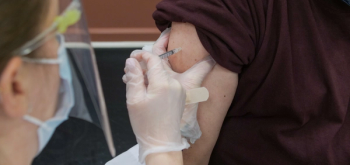
In a highly unusual move, CDC Director Rochelle Walensky, MD, overruled the agency’s panel of experts, saying that health care workers should get COVID-19 booster shots.


In a highly unusual move, CDC Director Rochelle Walensky, MD, overruled the agency’s panel of experts, saying that health care workers should get COVID-19 booster shots.

All the ancillary and support staff, including infection preventionists, have been called upon to help support the work of the frontline caregivers and are subject to the same stressors and potential for burnout.

If children get vaccinated and no new variant emerges, new infections will drop from 134,000 a day now to about 9,000 a day by March, according to 1 scenario. Deaths would fall to about 100 a day.

The season of respiratory tract infections is upon us. Influenza, rhinovirus, respiratory syncytial virus, and pertussis—as well as COVID-19—once again are attacking many individuals across the US and worldwide.
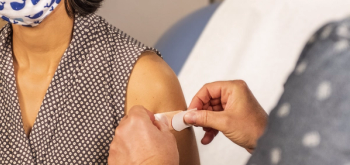
Investigators concluded that their data demonstrate the “high and stable effectiveness” of the single-dose COVID-19 vaccine across both high-risk patient subpopulations, as well as residents in areas more adversely affected by the delta variant.

The allocations are scheduled to begin next month, with initial awards totaling $885, of which $500 million will go to what the CDC calls “strike teams” that will focus on nursing homes and other long-term care facilities.
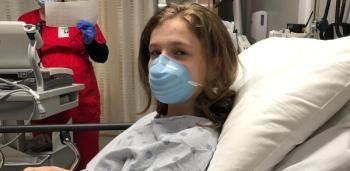
Health care workers know all too well the lasting and debilitating effects of long COVID-19. They were one of the first to become vaccinated and are some of the first experiencing breakthrough infections. They are tired, burned out, and many are on the brink of collapse.
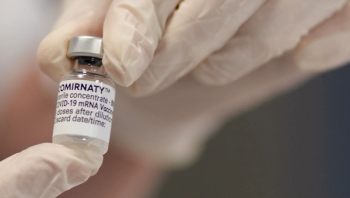
Some medical experts say that in this case, inaction is also an action—either the US gives boosters or does not. That decision needs to be based on the best available evidence. Instead, there seems to be a desire to wait another 6 months for pristine randomized controlled studies.

The CDC’s Runa Gokhale, MD, MPH: “I think that there is a role for infection preventionists to play here, and they are a community that we’ve been trying to engage through some of our sepsis awareness and sepsis prevention efforts.”

Patients with abnormally low blood pressure were less likely to receive antibiotics even though they could benefit from such treatment, according to a recent study.

Take 5 minutes to catch up on Infection Control Today’s highlights for the week ending September 17.

Linda Spaulding, RB-BC, CIC: “The time to hold nursing homes accountable is not the time when everything’s falling apart, and they don’t know what to do, and there’s nobody there to guide them.”

The National Institutes of Health yesterday unveiled a $470 million study that it hopes will mine data from 30,000–40,000 people who suffer from long COVID. Right now, there are more questions than answers.

Vaccines work. They ward off severe illness and death. But they do not make health care workers invulnerable to breakthrough infections, according to a research letter in JAMA Open Network.

New antifungal agents that are being investigated for possible use against C. auris, such as Ibrexafungerp (Brexafemme), show promise—so far.

Researchers found the mu variant to be the most resistant variant to antibodies from either previous infection or from vaccines, a spot that had been previously occupied by the beta, or the South African, variant.
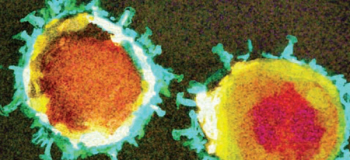
Investigators used acetone-washed, pre-autoclaved stainless-steel coupons coated with reformulated quaternary ammonium polymer to keep deadly pathogens at bay.

The pathogen can lurk on blankets, bed rails, trolley handles, sheets, door handles, light switches, bedside tables, bedside table drawers, curtains, sinks, food tables, curtains, normal saline stands.
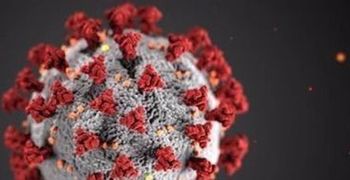
The data seem to give credence to the government’s push to get more Americans vaccinated against COVID-19.

Take 5 minutes to catch up on Infection Control Today’s highlights for the week ending September 10.

With seemingly reckless abandon, we are quickly headed toward an era in which the antibiotics we once used to treat infection will be rendered ineffective.

The further away from an infected person you are, the less likely you are to contract the disease. But you are still not safe at 6 feet. The virus is airborne and can spread much further to the back of the classroom.

President Biden: “The bottom line: We’re going to protect vaccinated workers from unvaccinated co-workers.”

C. diff infection is an old enemy and health care professionals have gathered an armamentarium of weapons against it, but it can be relentless.

President Biden tonight plans to outline 6 steps that the US needs to take to—in the short term—stem the latest COVID-19 surge, and—long term—put this pandemic behind us for good.